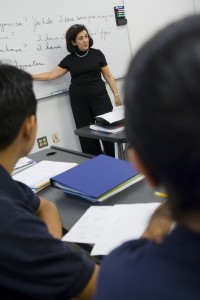 Key Components of service-learning are:
Key Components of service-learning are:
- Connecting Service with Learning – academically rigorous, meaningful service with a significant positive impact upon those involved
- Reflection – assessment of personal and community needs, relfection on participation, and evaluation of progress
- Reciprocity – both the student and community partner give and receive time, energy, knowledge, and creativity
- Critical Thinking – involvement in situations conducive to creative, effective problem-solving
- Social Responsibility – expansion of student’s compassion, civic awareness, and desire to be engaged in the community
- Experiential Learning – use of direct experience and hands-on learning to develop skills useful in future careers, family life, and community involvement
- Needs-Based – project based on community-identified needs
As a method of engaged scholarship, service-learning offers great benefits to faculty:
- Facilitates interdisciplinary and collaborative projects; broadens outlets for presentations and publications of research
- Relationship building with students through service experience
- Research opportunities
- Increases opportunities for professional recognition and awards
- Grant funding opportunities through service-learning
- Invigorates teaching efforts
- Fulfills University’s mission and objectives of the academic plan
- Creates a more personal relationship between students and instructor
- Demonstrates commitment to the community by awarding academic credit for learning through service or community-based research
- Extends the classroom into community for the development of mutually-beneficial knowledge
Want more? Visit our Resources for Faculty page.
